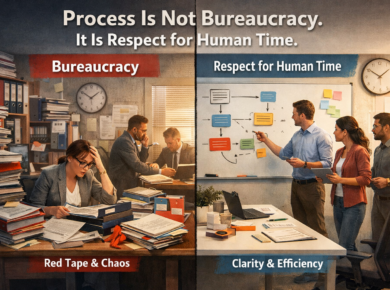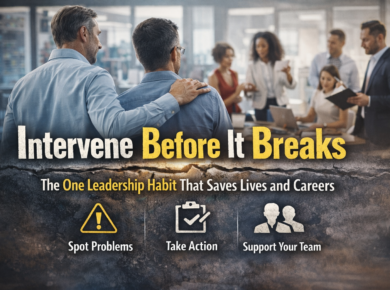10 Habits that make you an Ideal Team Player
Being part of a team isn’t just about working together—it’s about making the team better because you’re in it. Whether you’re in operations, quality, or leadership, certain habits can help you stand out as a truly valuable team player.
Let’s explore the habits that set apart an average team member from an exceptional one, with real-life examples.
1. Proactive Communication: Speak Up Before It’s Too Late
- Share updates regularly and clearly.
- Listen actively and respond thoughtfully.
- Use appropriate communication channels based on urgency and importance.
Imagine a project deadline is fast approaching, and a delay is inevitable because of a supply chain hiccup. Instead of waiting for the issue to blow up, you immediately inform the team, loop in procurement, and brainstorm solutions. By addressing it early, you avoid a last-minute disaster.
Great team players don’t just talk—they communicate with purpose.
2. Collaboration & Teamwork: No One Wins Alone
- Support colleagues and contribute to collective success.
- Be open to diverse ideas and perspectives.
- Avoid blame games; focus on solutions instead.
Think of a high-stakes project involving engineering, procurement, and quality teams. Instead of working in silos and pointing fingers, everyone shares updates, aligns priorities, and supports one another. The result? A smooth execution, a satisfied customer, and zero blame games.
Collaboration means lifting others up, not just yourself.
3. Accountability & Ownership: Own It Like It’s Your Baby
- Take responsibility for tasks and deliverables.
- Admit mistakes, learn from them, and improve.
- Meet deadlines and keep commitments.
A defect slips through production, and instead of making excuses, the quality lead takes full ownership. They quickly investigate, identify root causes, and implement corrective actions to prevent it from happening again. No finger-pointing, just solutions.
Great team players don’t dodge responsibility—they take it head-on.
4. Adaptability & Open-mindedness: Change is Uncomfortable, But So is Growth
- Embrace change and be flexible in dynamic environments.
- Stay open to feedback and new ways of working.
- Develop a problem-solving mindset rather than resisting change.
Your company decides to roll out a new ERP system, and while others complain, you take the initiative to learn it quickly and train colleagues. Within weeks, you become the go-to person, making the transition smoother for everyone.
Adaptability is the difference between leading change and resisting it.
5. Positive Attitude & Resilience: The Right Mindset is Everything
- Stay optimistic even in challenging situations.
- Encourage and motivate the team.
- Handle stress effectively without bringing negativity to the workplace.
Your team faces unexpected machine failure, delaying production. Instead of panicking or blaming, your plant head reassures the team, works with maintenance, and finds a temporary workaround to minimize downtime. The situation is tough, but your attitude makes all the difference.
Energy is contagious—bring the right kind to work.
6. Constructive Conflict Resolution: Fight the Problem, Not Each Other
- Address disagreements with logic and professionalism.
- Focus on the issue, not the person.
- Seek win-win solutions through collaboration.
During a budget planning meeting, two department heads have conflicting views on resource allocation. Instead of arguing endlessly, they discuss logic over emotions, find common ground, and propose a solution that benefits both teams.
Disagreements happen, but how you handle them defines you.
7. Commitment to Continuous Learning: Stay Curious, Stay Relevant
- Stay updated with industry trends and best practices.
- Learn from successes and failures.
- Be willing to acquire new skills and share knowledge with the team.
A process improvement expert notices inefficiencies in material handling. Instead of ignoring it, they enroll in a Lean Six Sigma course, apply new techniques, and help the company reduce waste and improve productivity.
The best team players never stop learning.
8. Time Management & Prioritization: Work Smarter, Not Just Harder
- Plan work effectively and meet deadlines.
- Avoid multitasking; focus on high-impact tasks.
- Respect others’ time by being punctual and prepared.
An operations manager juggles multiple tasks—handling a supplier issue, reviewing production schedules, and preparing a report. Instead of trying to do everything at once, they prioritize the most critical task first, delegate routine work, and meet all deadlines without stress.
Being busy isn’t impressive—being effective is.
9. Empathy & Emotional Intelligence: People Matter More Than Targets
- Understand and respect teammates’ emotions and perspectives.
- Offer help when someone is struggling.
- Build strong relationships through trust and mutual respect.
A usually energetic colleague seems distant and disengaged. Instead of ignoring it, you check in, offer support, and adjust workloads temporarily. Your small gesture makes a big difference, reinforcing a culture where people care.
Empathy isn’t a soft skill—it’s a leadership skill.
10. Results-Oriented Mindset: Focus on Impact, Not Just Activity
- Align personal goals with team and organizational objectives.
- Focus on impact and efficiency rather than just completing tasks.
- Celebrate team achievements and contribute to continuous improvement.
A quality leader sets a goal of reducing customer complaints by 30%. Instead of just tracking numbers, they implement preventive measures, train employees, and monitor progress—leading to tangible improvements.
Effort is great, but results are what truly count.
Developing these habits not only makes you a valuable team player but also positions you as a future leader in the organization. Which of these do you find most important in your current role?
Final Thought: The best team players are not just hard workers—they make the workplace better for everyone. Which of these habits do you already practice, and which one will you work on next?









